

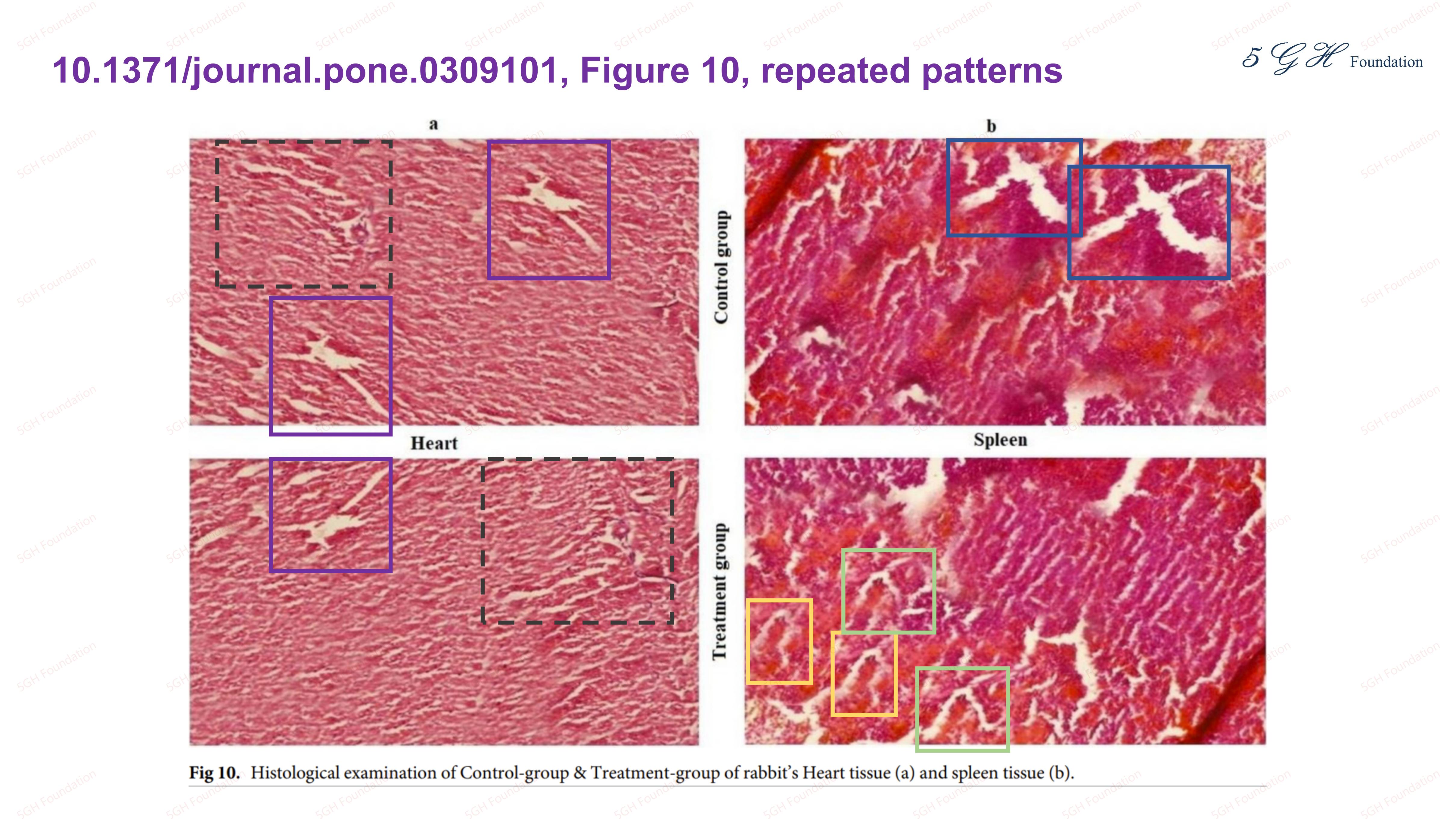
Abnormal data was published on the article, with title "Development of Timolol Maleate-Loaded Poloxamer-co-Poly (acrylic acid) based hydrogel for controlled drug delivery", and authored by Raneem Mansoor, Kashif Barkat, Irfan Anjum, Muhammad Aamir, Syed Faisal Badshah, Riaz Ullah, Zafar Iqbal, and Muhammad Ahmer Raza.

Abnormal data was published on the article, with title "Fabrication of β-cyclodextrin-based microgels for enhancing solubility of Terbinafine: An in-vitro and in-vivo toxicological evaluation", authored by Saira Akhtar, Kashif Barkat EMAIL, Nariman Shahid, Irfan Anjum, Syed Faisal Badshah, Maryam Shabbir, Samir Ibenmoussa, Yousef A. Bin Jardan, Mohammed Bourhia, Ahmad Mohammad Salamatullah and Musaab Dauelbait.
Songling Wang (王松灵), a leading dental scientist in China, and a fellow of the Chinese Academy of Science, has published over 200 academic articles until recently. However, on most of his publications, Wang spells his name as "Songlin Wang" instead of "Songling Wang", which is likely due to his dialect accent.
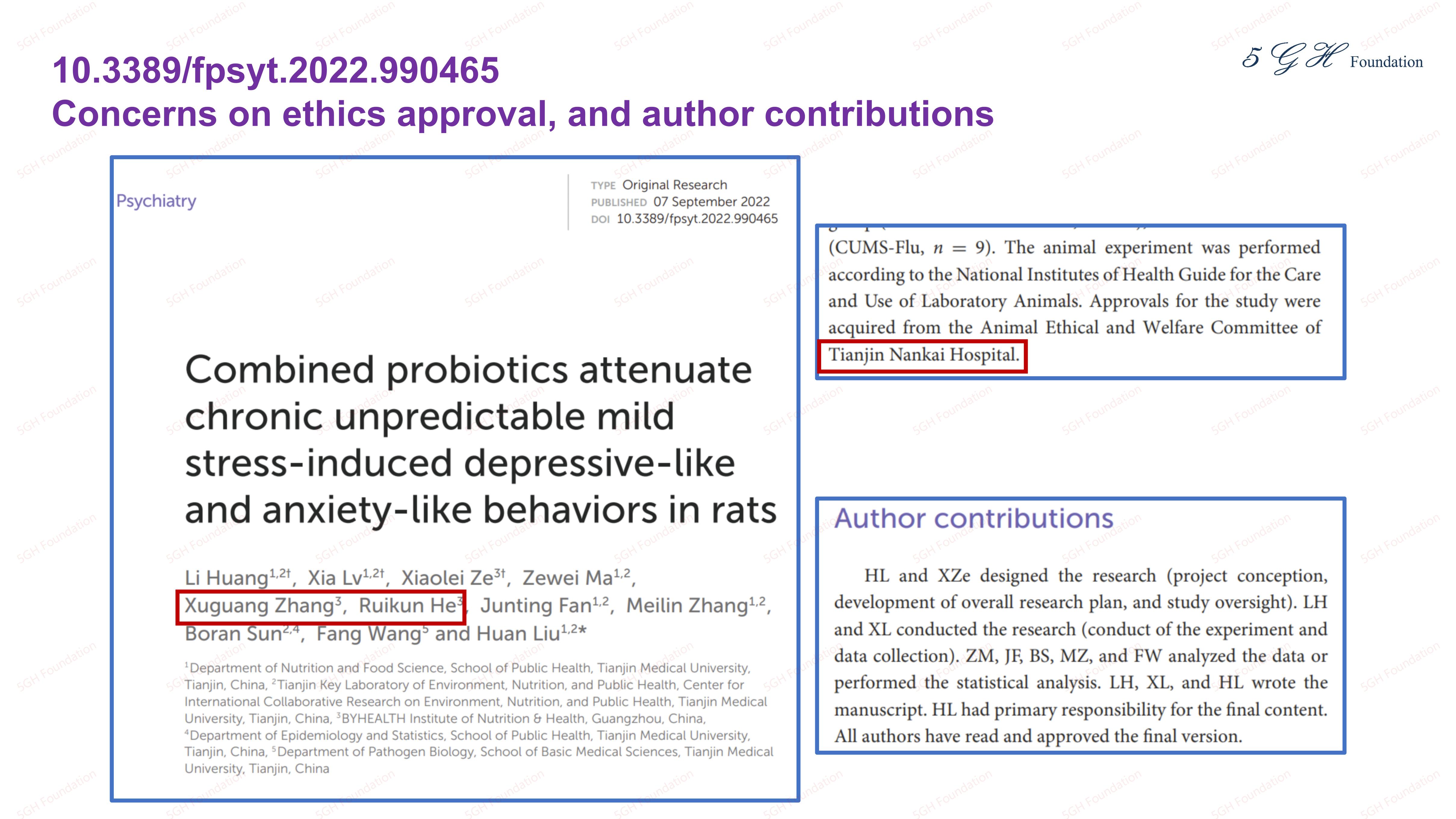
Two employees with the BYHEALTH (汤臣倍健) Institute of Nutrition & Health, Xuguang Zhang and Ruikun He, were listed as co-authors for the article [1], however, their contributions were not disclosed on the Author Contribution section, raising concerns on their authorship to this article.
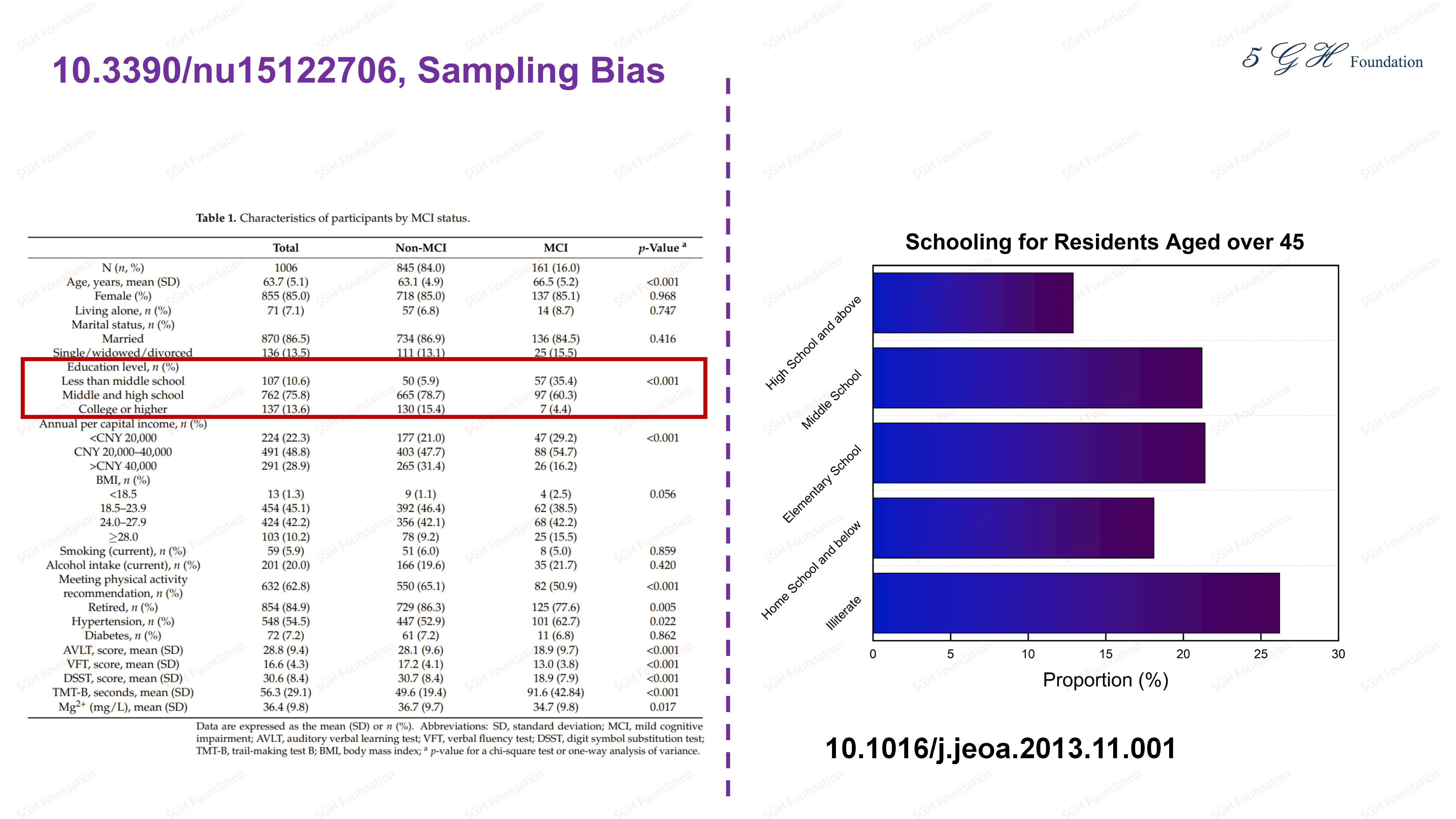
Concerns are raised regarding to sampling bias in some BYHEALTH-funded studies and other studies BYHEALTH took part in. The 5GH team, who investigated this matter, warns the scientific community and the public to pay more cautions in interpreting the outcomes of those studies.
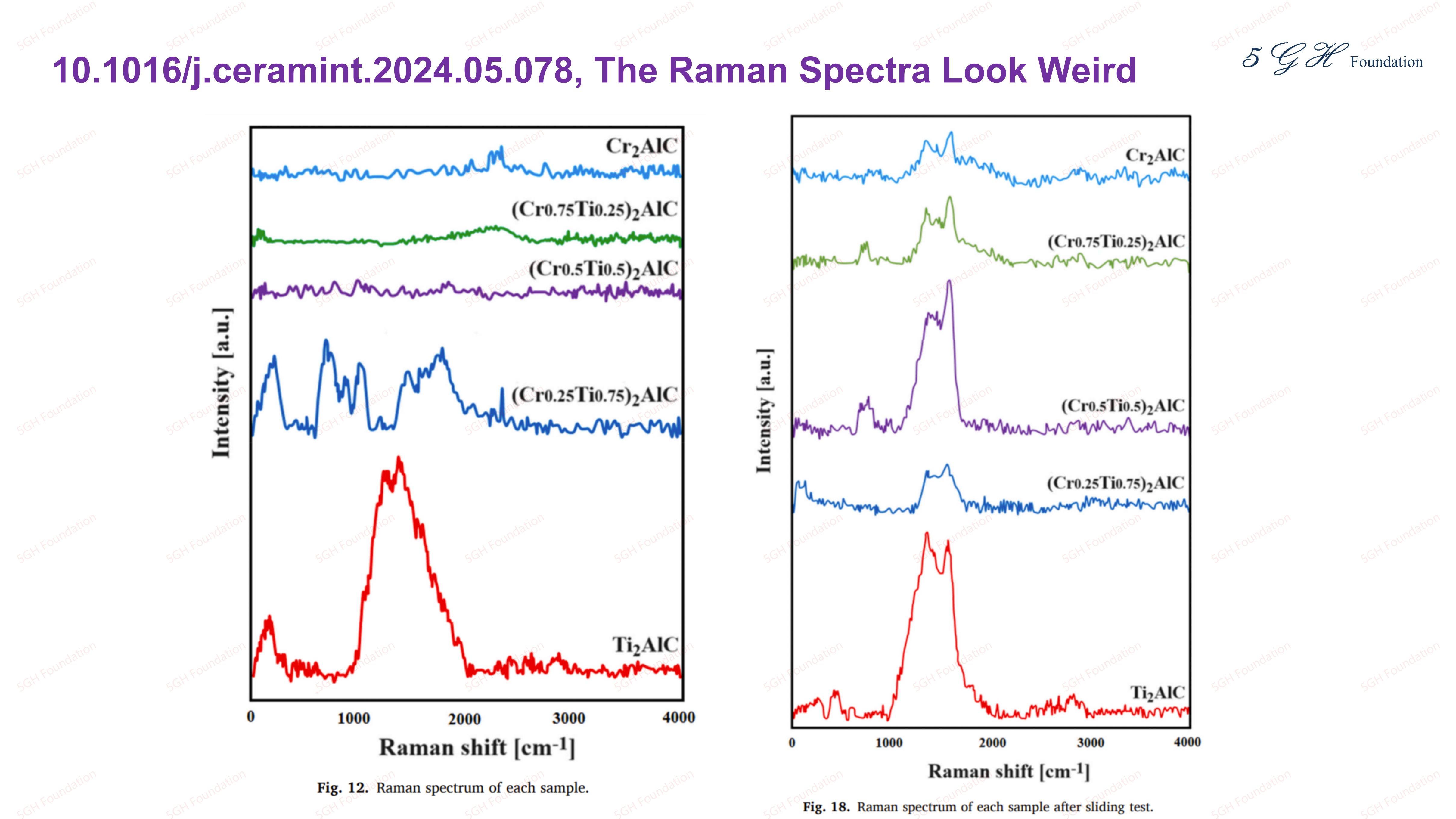
The Ramen spectra on article seem weird, although we can not tell what is wrong with them. The 5GH Team asks any input about these Raman spectra. Your comments are welcome to be sent to 5GH@5gh.org.cn

An Investigation by the 5GH Team reveals that the articles published on the Special Issue "Geomicrobiology: Latest Advances and Prospects" have high proportions of references to Cesareo Saiz-Jimenez, one of the special issue's guest editors, suggesting potential misconduct by Saiz-Jimenez to promote his citations with his editorial role on the special issue.

Recently, we came across an issue that the self-citation number of an article is incorrect on Singals, a tool for evaluating academic articles.
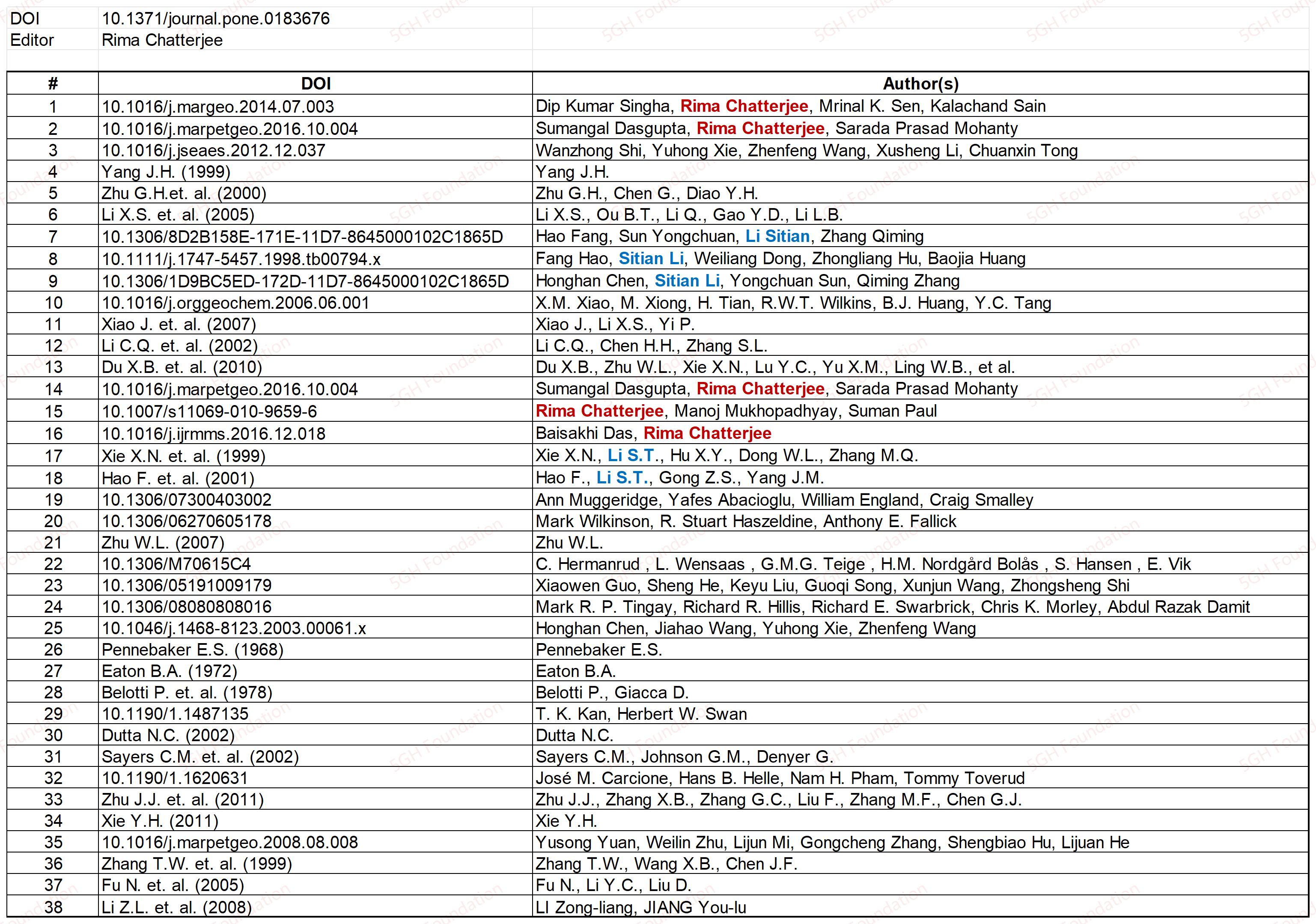
Recent investigation suggests that an article has high proportion (about 13%) references to its handling editor Rima Chatterjee, raising concerns that Chatterjee took advantages of her editorial role to promote her citations.
Recent investigation suggests that the handling editor of the article did not disclose his conflict of interest with the author.
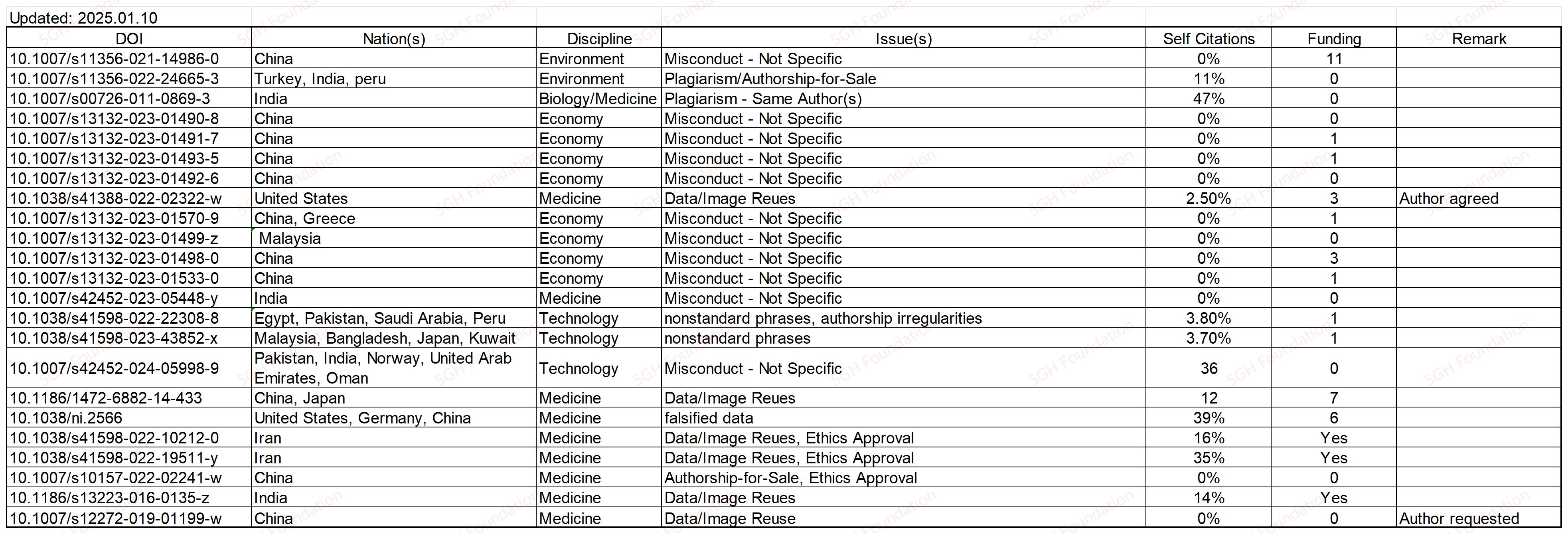
Between January 1st and 10th, 2025, twenty-three articles published on Springer Nature titles were retracted. Twelve of them (52%) do not cite any previous articles from the authors, namely "ZERO self-citation". This phenomenon raises a question for the scientific community: Is zero self-citation an indicator for problematic articles?
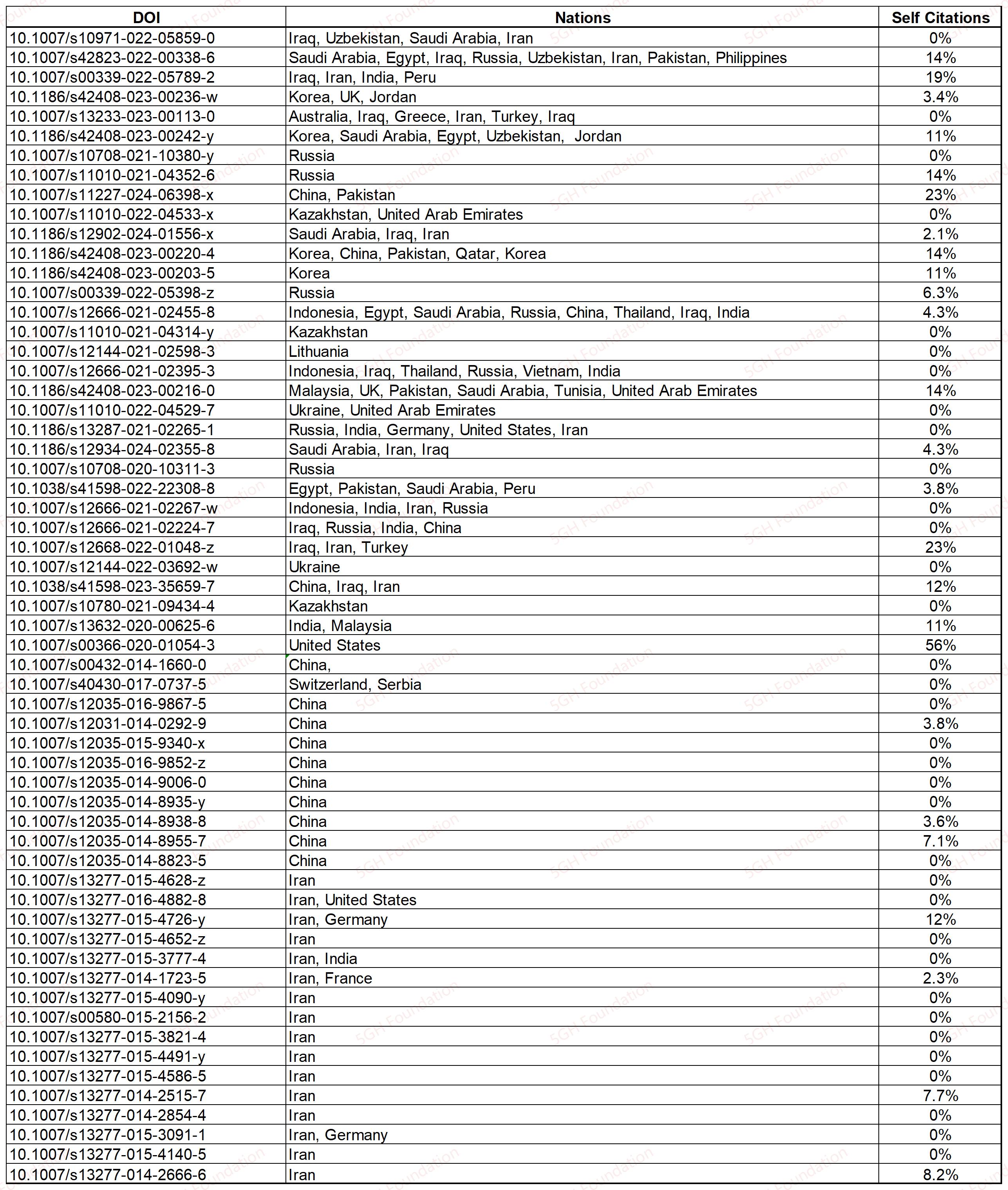
Up to recently, Springer Nature have retracted 59 articles due to "irregularities with respect to submission, authorship, and peer review", "irregularities with respect to submission and authorship", "irregularities in authorship during the submission process" and other similar reasons. 58% (34/59) of them have zero self-citation, suggesting that "ZERO self-citation" may be an indicator for problematic articles.
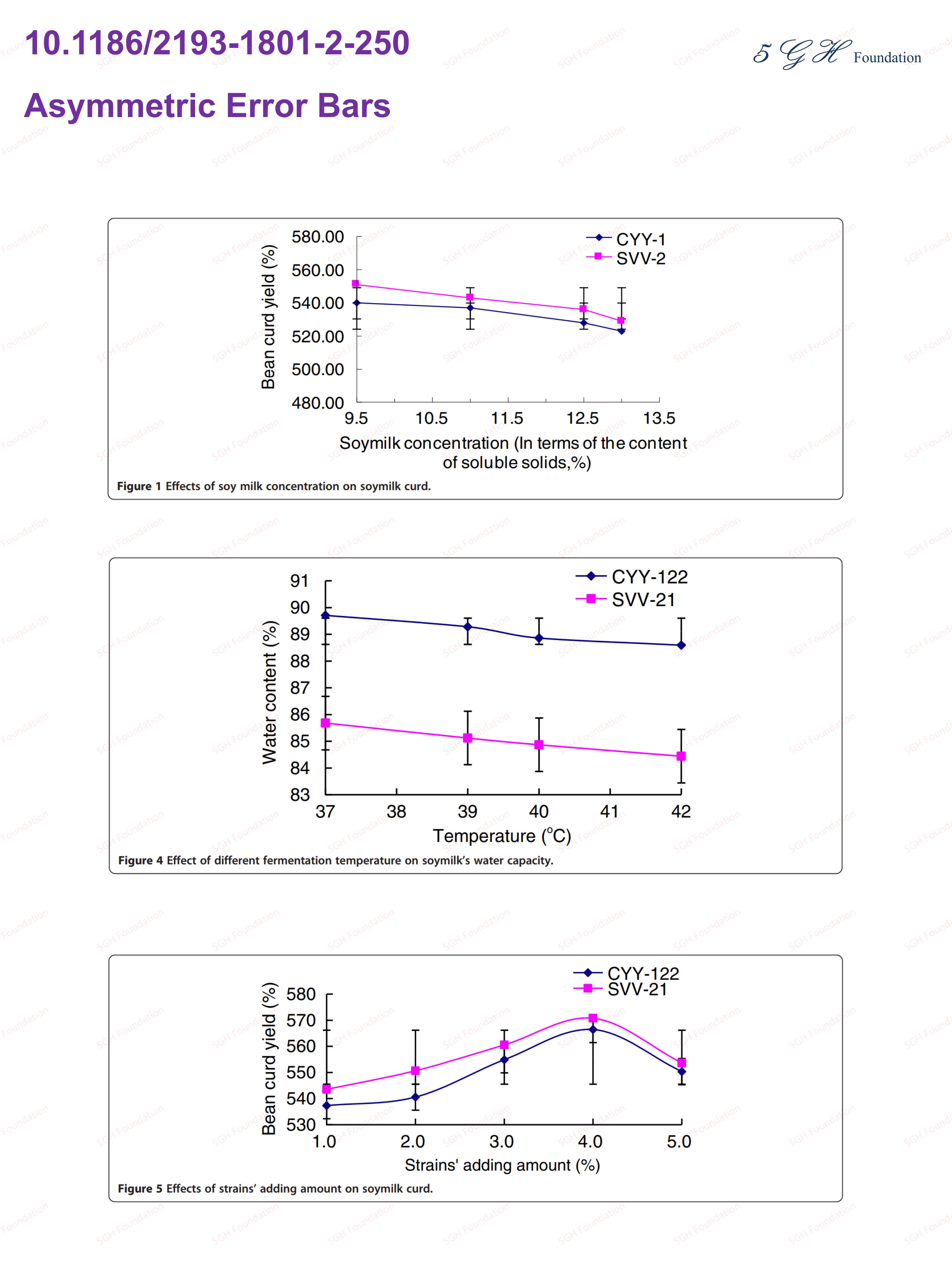
Asymmetric error bars were observed on article, suggesting the data was manipulated.
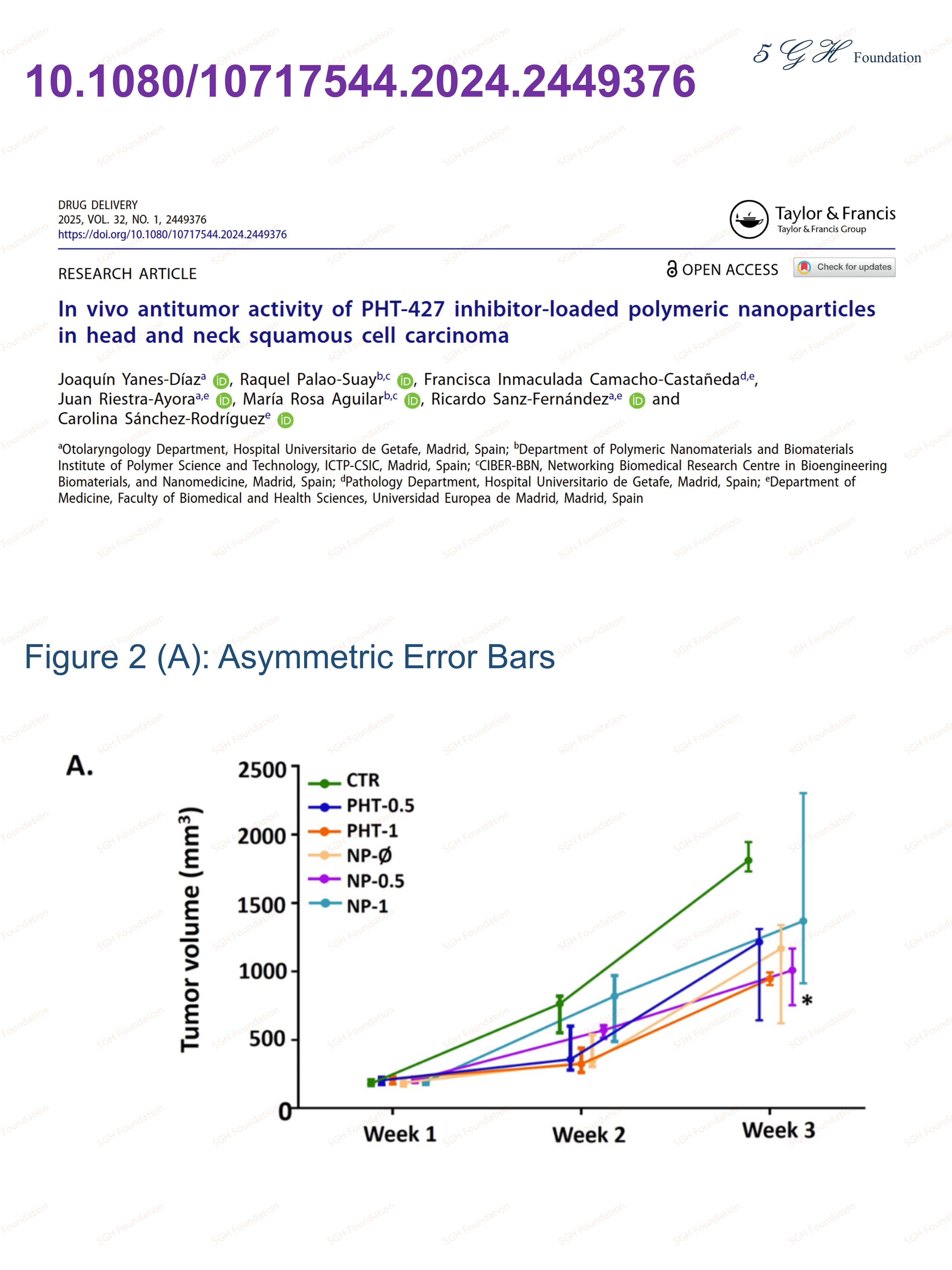
Asymmetric error bars were observed on article.
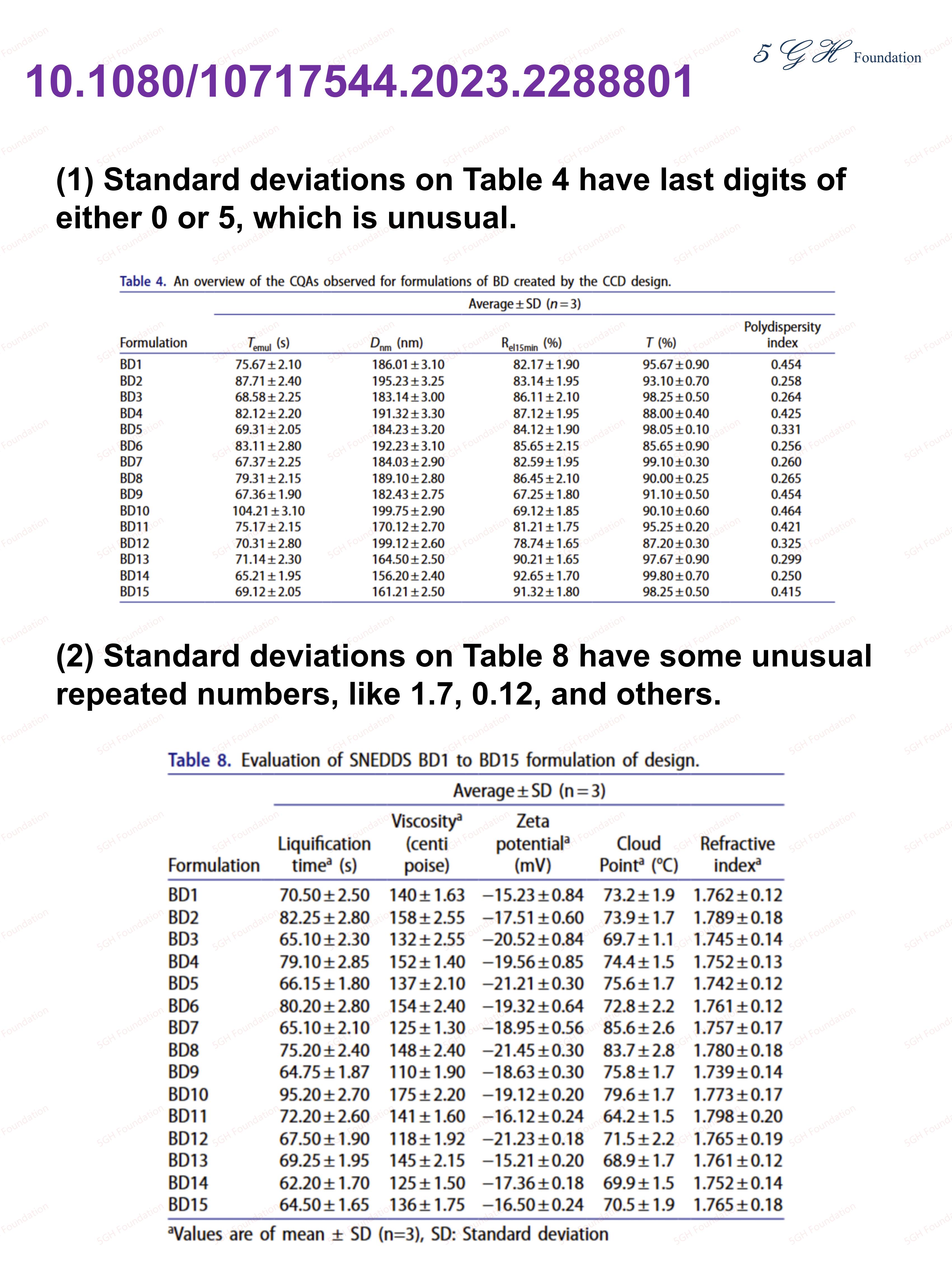
We found some abnormal data on the article